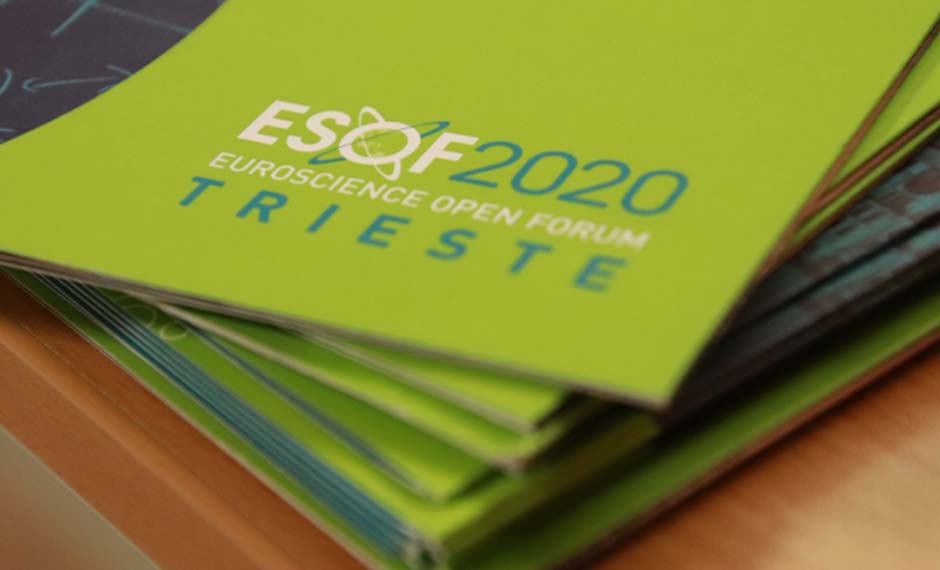In light of the Covid-19 pandemic, dialogue between science and society is more important than ever. This year’s EuroScience Open Forum, a hybrid of in-person and online events held 2-6 September, provided a key international platform to discuss and share experiences on issues such as communicating scientific uncertainty and maintaining public trust in science.

VA (Public & Science) contributed to four online sessions during the week, all part of the ‘Science and Society’ programme:
The quest for reliability in the face of an ’infodemic’: handling scientific uncertainty in unfolding debates explored the roles of researchers, engagement practitioners, journalists and institutions in communicating scientific uncertainty, and how uncertainty and tradeoffs can be communicated well, particularly in light of the Covid-19 pandemic. This dialogue session was a joint event organised by public engagement organisations across Europe, including VA, and was moderated by Tracey Brown, Sense About Science.
Cissi Askwall, VA (Public & Science), introduced the session, mentioning that research has seldom been more in focus than during the pandemic, but at the same time an infodemic of false claims, fake news and conspiracy theories are flourishing.
Stephan Lewandowsky, Professor at the University of Bristol and author of the recently published Conspiracy Theory handbook, cited research suggesting that uncertainty can lead people to both conspiratorial thinking and inaction. He and the panelists Imran Khan, Wellcome Trust; Emma Frans, Karolinska Institutet, and Laurie Smillie, European Commission, all stressed the importance of science engagement and of researchers being open and transparent, also about uncertainty.
The ESOF session was recorded and can be seen here.
Rethinking Science Communication: Experience from the Covid-19 Pandemic was a session organised by the Danish science media platform ScienceStories.dk. Participants could hear about the experience of a number of science communicators who have been working throughout the Covid-19 pandemic. This included Atila Iamarinois, a Brazilian researcher, who has been producing live videos to inform the population about the virus via his personal YouTube channel with more than 2 million subscribers, and Ángel Rodríguez Lozanoi, who creates and directs scientific dissemination programmes on Spanish public radio.
VA’s Cissi Askwall shared the results of VA’s ongoing study to investigate public perceptions of the media reporting on the coronavirus in Sweden.
It was interesting and alarming to learn about the difficulties related to communicating about Covid-19 with Brazilians, having to fight misinformation from the national government, said Cissi Askwall.
Understanding public trust and distrust in science explored the crucial role science communication plays in the gaining and maintaining of public trust for scientists and scientific institutions. Discussions during the session drew upon findings from a number of attitude surveys, performed before the pandemic and during the current Covid-19 crisis.
Public trust in researchers is generally high, according to results from different European countries, including VA’s annual Barometer, which Cissi Askwall presented. The same is suggested by the German Barometer conducted by Wissenschaft im Dialogue and presented by Markus Weißkopf, and the Italian Observa Science and Society monitor, presented by Massimiano Bucchi.
During the pandemic public trust seems to have increased, according to special surveys conducted in all three countries. The trust for researchers and health care professionals in Swedish media reports about the virus are also stable over time, but researchers as well as politicians are perceived as less in agreement now than in March 2020.
Joining forces for a global 21st century Responsible Research and Innovation network was a session initiated by the RRING project network to explore opportunities to develop a global RRI network that is both useful and sustainable. The session drew upon the collective insights of a number of European projects and initiatives, including the RRING project network, presented by Gordon Dalton, MaREI University College Cork, the New Horrizon network presented by Erich Griessler, University of Vienna, and the ORION Open Science project, presented by VA’s Maria Hagardt.
Participants were invited to share ideas by mentimeter on the benefits of developing a framework for RRI and how setting up a global network for RRI would make the most of existing RRI know-how, results and impacts. This was also commented on by the panel speakers John Crowley, UNESCO; Marion Boland, Science Foundation Ireland; Jessica Wyndham, AAAS; and Gail Cardew, Euroscience. The discussion on how to build a global RRI network will continue and interested stakeholders will have an opportunity to contribute.
A positive result of the pandemic is that research is very much in focus. And since people around the globe share the same problem, we can and must collaborate and learn from each other, Cissi Askwall concluded.
The EuroScience Open Forum (ESOF) is a biennial, pan-European, science conference dedicated to scientific research and innovation. For more information see www.esof.eu
